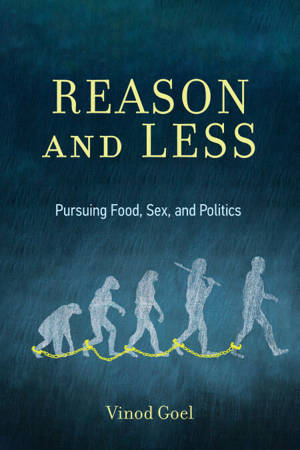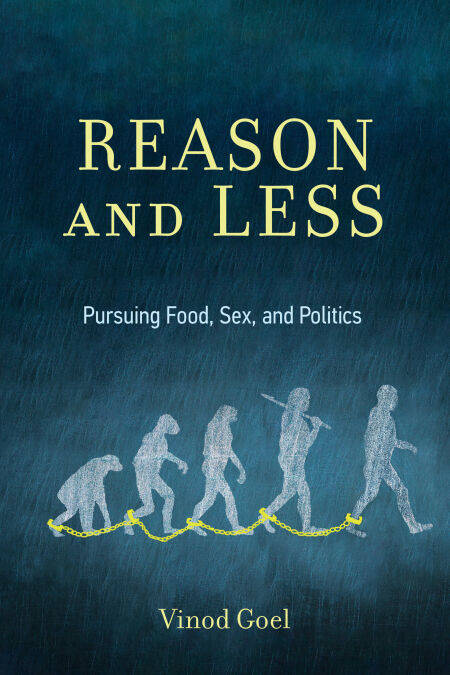
- Retrait gratuit dans votre magasin Club
- 7.000.000 titres dans notre catalogue
- Payer en toute sécurité
- Toujours un magasin près de chez vous
- Retrait gratuit dans votre magasin Club
- 7.000.0000 titres dans notre catalogue
- Payer en toute sécurité
- Toujours un magasin près de chez vous
44,35 €
+ 44 points
Format
Description
A new, biologically driven model of human behavior in which reason is tethered to the evolutionarily older autonomic, instinctive, and associative systems.
In Reason and Less, Vinod Goel explains the workings of the tethered mind. Reason does not float on top of our biology but is tethered to evolutionarily older autonomic, instinctive, and associative systems. After describing the conceptual and neuroanatomical basis of each system, Goel shows how they interact to generate a blended response. Goel’s commonsense account drives human behavior back into the biology, where it belongs, and provides a richer set of tools for understanding how we pursue food, sex, and politics.
Goel takes the reader on a journey through psychology (cognitive, behavioral, developmental, and evolutionary), neuroscience, philosophy, ethology, economics, and political science to explain the workings of the tethered mind. One key insight that holds everything together is that feelings—generated in old, widely conserved brain stem structures—are evolution’s solution to initiating and selecting all behaviors, and provide the common currency for the different systems to interact. Reason is as much about feelings as are lust and the taste of chocolate cake. All systems contribute to behavior and the overall control structure is one that maximizes pleasure and minimizes displeasure.
Tethered rationality has some sobering and challenging implications for such real-world human behaviors as climate change denial, Trumpism, racism, or sexism. They cannot be changed simply by targeting beliefs but will require more drastic measures, the nature of which depends on the specific behavior in question. Having an accurate model of human behavior is the crucial first step.
In Reason and Less, Vinod Goel explains the workings of the tethered mind. Reason does not float on top of our biology but is tethered to evolutionarily older autonomic, instinctive, and associative systems. After describing the conceptual and neuroanatomical basis of each system, Goel shows how they interact to generate a blended response. Goel’s commonsense account drives human behavior back into the biology, where it belongs, and provides a richer set of tools for understanding how we pursue food, sex, and politics.
Goel takes the reader on a journey through psychology (cognitive, behavioral, developmental, and evolutionary), neuroscience, philosophy, ethology, economics, and political science to explain the workings of the tethered mind. One key insight that holds everything together is that feelings—generated in old, widely conserved brain stem structures—are evolution’s solution to initiating and selecting all behaviors, and provide the common currency for the different systems to interact. Reason is as much about feelings as are lust and the taste of chocolate cake. All systems contribute to behavior and the overall control structure is one that maximizes pleasure and minimizes displeasure.
Tethered rationality has some sobering and challenging implications for such real-world human behaviors as climate change denial, Trumpism, racism, or sexism. They cannot be changed simply by targeting beliefs but will require more drastic measures, the nature of which depends on the specific behavior in question. Having an accurate model of human behavior is the crucial first step.
Spécifications
Parties prenantes
- Auteur(s) :
- Editeur:
Contenu
- Nombre de pages :
- 440
- Langue:
- Anglais
Caractéristiques
- EAN:
- 9780262362450
- Date de parution :
- 07-02-22
- Format:
- Ebook
- Protection digitale:
- Adobe DRM
- Format numérique:
- ePub

Les avis
Nous publions uniquement les avis qui respectent les conditions requises. Consultez nos conditions pour les avis.






